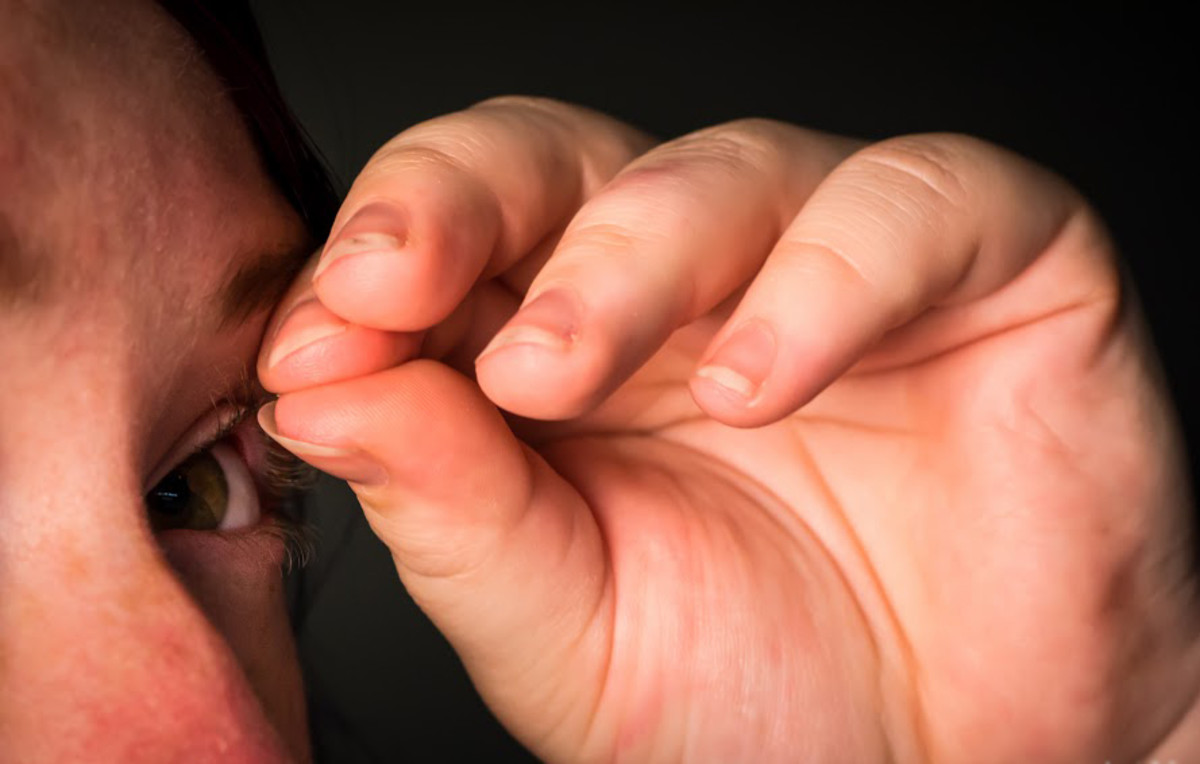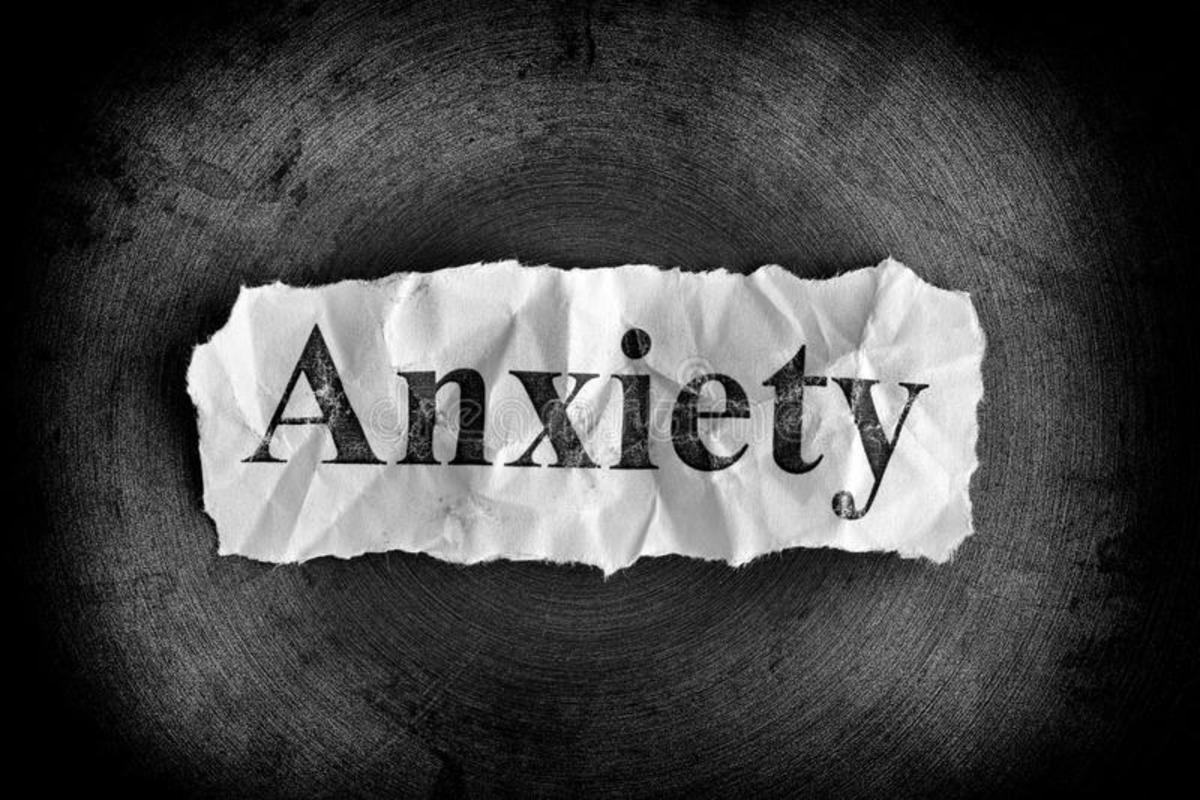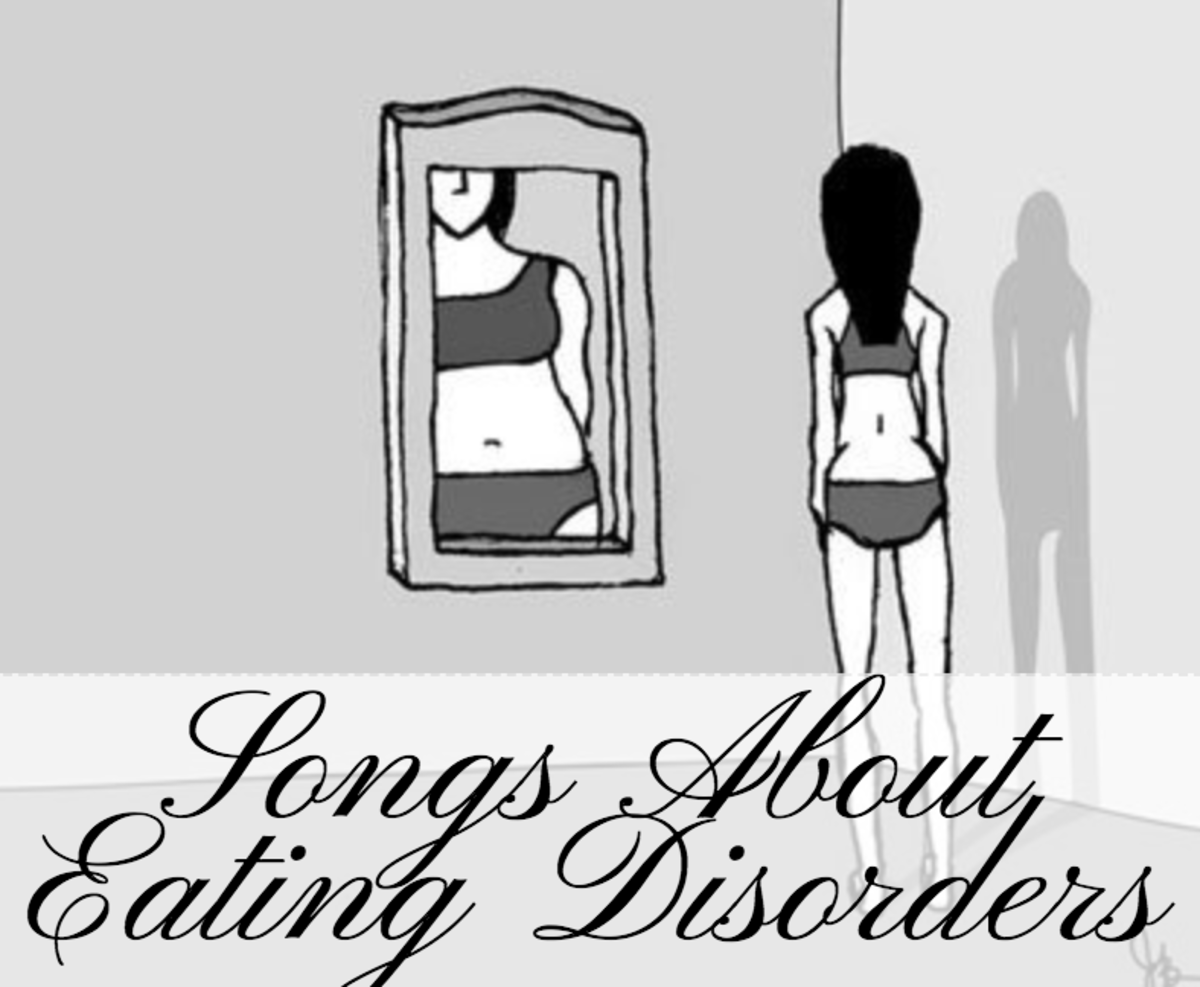Basic Information on Eating Disorders
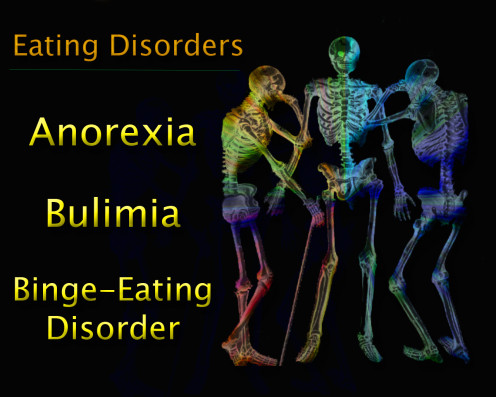
Eating disorders are difficult to understand and are extremely complex illnesses that involve genetics, medical and psychiatric disorders, and may co-exist with major depression, anxiety and obsessive compulsive disorder (OCD). In order to understand this complex process, one must understand all the components that comprise eating disorders. Anorexia and bulimia have very fundamental similarities that are expressed by different features. In recent studies about women with eating disorders,the researchers have found that OCD and dysmorphia, a condition where the person cannot see their true body size, have a profound relationship with anorexia and bulimia.Most people know that people who suffer with anorexia and bulimia restrict food intake in different ways to control their weight. However, understanding the mechanisms behind the behavior is much less known. In this article, we attempt to understand what may be the underpinnings of eating disorders and what compels people with anorexia and bulimia to continue the cycle of eating disorders.
The Mechanisms of Eating Disorders
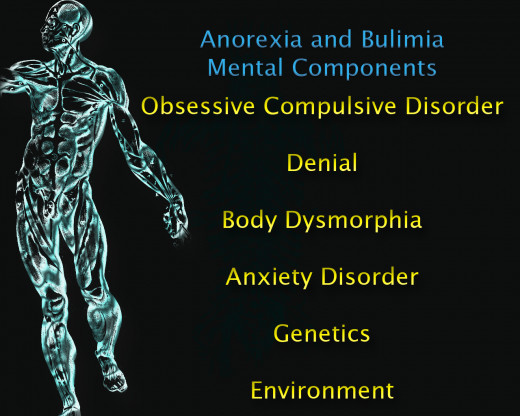
Relentless Thoughts to Perform or Check Something
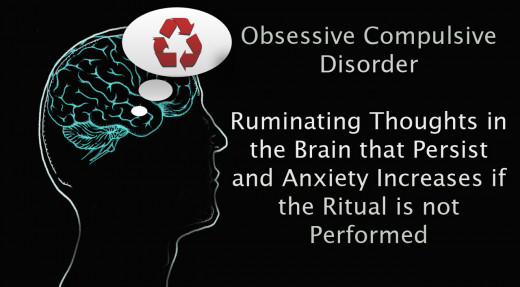
What is Obsessive Compulsion Disorder?
Everyone knows what it is like to be a little obsessive about something. Maybe dirty dishes in the sink, a crooked picture on the wall or a person with messy hair makes you a little uncomfortable and you "just have to fix it." This is normal human behavior and demonstrates the symmetry that humans strive to create. A bird will build a nest out of necessity or instinct, but will not strive for perfection or symmetry; birds don't exhibit human creativity or a yearn for perfection. However, humans do. For example, what if the crooked picture on the wall was more than a small annoyance that propelled you to "fix it." In fact, you worried about the position of the picture all day long and wondered if it was crooked. You went home at lunchtime to "check" the status of the picture, and maybe phoned your family and asked them if the picture was straight or not. Eventually, you found it hard to leave the house, perhaps the picture would somehow become crooked and you couldn't fix it. Your anxiety grew until you could not relieve it unless you were sure the picture was straight. Now, you are house bound, and cannot leave the "picture" without experiencing a crippling anxiety that keeps you in a debilitated state. This is an example of obsessive compulsive disorder. The "trigger" doesn't matter, it is the "obsession" to "check it," and the anxiety that is relieved when you "fix it." True OCD is defined by the anxiety that builds in response to "something" that triggers the person to worry about it. When the obsession interferes with social, career and relationships, it is true obsessive compulsion disorder.
OCD and Eating Disorders
People who suffer from Anorexia or Bulimia often are obsessed with perfection. Not only by the physicality, but school grades, social skills and acceptance. Weight becomes the obsession in OCD, and the person will develop the need to control it no matter what the cost-- even with the possibility of death.The very thought of gaining a few ounces will throw them into a state of anxiety and panic. Their way to reduce anxiety and depression is through weight control and refusing food. They cannot stand the emotional turmoil that they experience when they do not restrict food intake and run the risk of gaining weight. OCD is being compelled to do something that releases anxiety, not brings the person pleasure. Thus, affected persons are miserable and suffer deep depression and emotional pain.
What is Denial and Why do we Need it?
Denial is a healthy mechanism that allows people to experience new opportunities and be adventurous and successful. Everyone knows that they may get into a car accident at anytime, but denial helps you get into the car and drive to the mall. Without denial, no one would do anything that may cause them harm. We calculate risks with the positive outcomes everyday. Denial becomes harmful when it protects us from substance abuse, addiction and harmful behavior. The brain decides that the risks of alcoholism may be lower than experiencing alcohol withdrawal or living without it, so the addicted person continues the harmful behavior without interference from the usual warnings of the brain. People with eating disorders continue their behavior and remain in a state of denial. The fear of gaining weight and not being perfect, or in control of one's body appearance, is far greater than perishing from starvation.
The Person Sees a Larger and Heavier Body Image
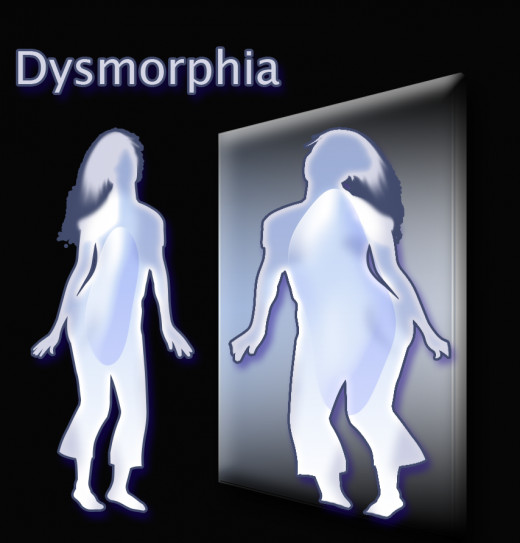
What is Body Dysmorphic Disorder?
People with eating disorders frequently suffer from an phenomenon known as dysmorphia, or dysmorphic disorder. They look in a mirror and see a much bigger body than they truly live in. A test for this disorder is provided by asking the person with dysmorphia to judge how wide an open door has to be for them to walk through. Overwhelmingly, people with eating disorders believe the door must be opened far more than is necessary for them to pass through. However, they can judge the appropriate distance of the doorway opening for others to pass through. This may be a form of denial that permits them to continue to restrict food to reduce their anxiety, and not feel that they are in danger of starvation.
Anorexia Nervosa
Anorexics are compelled to refuse food and are obsessed with weight gain. An extremely complex mental illness, the person is fixated on staying thin while suffering from a distorted self-perception of body image. Many anorexics will restrict calorie intake to well under 800 calories daily, the starved brain eventually suffers distorted thought processes and may become delusional or experience co-existing mental illnesses. Despite their refusal to eat, people with anorexia are hungry but are in extreme fear of gaining weight. The process of obsessive compulsions and body image distortion enables them to maintain fasting despite an unhealthy body weight and poor nutritional status. They will perform extreme exercise and take laxatives to keep from gaining weight despite an unhealthy weight. Signs and symptoms of anorexia may be:
- Restriction of food or refusal to eat
- Wearing layered clothes to hide low weight
- Cooking meals for others but not eating
- Making excuses not to eat meals with family
- Ritualistic with food: Cuts food into tiny pieces with equal size
- Obsessed with calories and fat content of foods
Bulimia Nervosa
Bulimia is defined by a person who starves themselves for a period of time, then develops an intense hunger that compels them to eat a large volume of food, then purge or induce vomiting in a frantic attempt to not gain weight. A person engaged in a food-binge can last up to an hour with a consumption of 3,000 to 6,000 calories in one episode. Many sufferers from bulimia have started out with anorexia, and eventually develop such an extreme hunger that they have to satisfy it with a food-binge. After consuming food, the person experiences an intense panic that cannot be relieved until the stomach is purged of food. Other extreme behaviors to lose weight include:
- Extreme exercise: Running for 10 miles
- Taking large amounts of laxatives
- Use of enemas and diuretics
- Taking over-the-counter medications to induce vomiting
Unfortunately, the body becomes efficient at absorbing food quickly after the binge-purge cycle is performed overtime, and most bulimics gain weight overtime. With the result of weight gain, the cycle of binge-purge is only reinforced as the person panics and becomes more obsessed with their goal.
Binge Eating or Compulsive Overeating Disorder
Although people affected by binge eating disorder have a strong emotional motivation for food, they derive pleasure from the eating experience and do not feel compelled to purge the body of calories. Although poorly understood, researchers do suggest that the binge episode of this disorder is triggered more by an addiction to food rather than a response to avoiding it. People with is disorder may binge on food all day or experience episodes of consuming high calories and do not purge, and do not exercise or try to "make up" for the increase of calories. Post overeating, people feel ashamed, guilty and experience deep depression.
The Complex Components of Eating Disorders
As we examine the different contributing factors to eating disorders, it may provide a better understanding of the thought processes and distortions that compel them. More research in the area of eating disorders needs to be done in order to provide more help for affected persons and how to prevent and treat eating disorders.




